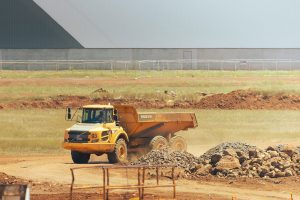When it comes to financing a mobile home park, one of the most critical steps is the appraisal process. The valuation of the park plays a significant role in determining the loan amount you can secure. Understanding how appraisers determine the value of a mobile home park and the factors that influence this valuation can help you navigate the financing process more effectively. In this blog post, we’ll dive into the appraisal process and explore how it impacts loan amounts.
What is a Mobile Home Park Appraisal?
A mobile home park appraisal is an independent assessment of the property’s value conducted by a licensed appraiser. This valuation is used by lenders to determine the amount they are willing to lend against the property. The appraisal process involves a thorough analysis of various factors, including the park’s income, expenses, physical condition, location, and market conditions.
Key Factors in Mobile Home Park Valuation
- Income Approach
The income approach is one of the most commonly used methods to appraise mobile home parks. It focuses on the park’s ability to generate income. The appraiser will analyze the park’s financial statements, including rent rolls, operating expenses, and net operating income (NOI).
- Gross Income: This includes all the income generated from rent, utilities, and other services provided by the park.
- Operating Expenses: These are the costs associated with running the park, such as maintenance, utilities, property management, and taxes.
- Net Operating Income (NOI): This is calculated by subtracting the operating expenses from the gross income. A higher NOI typically indicates a more valuable property.
- Sales Comparison Approach
The sales comparison approach involves comparing the mobile home park to similar properties that have recently sold in the same area. The appraiser will look at factors such as:
- Location: The desirability of the park’s location, proximity to amenities, and overall market conditions.
- Size and Layout: The number of lots, size of the lots, and overall layout of the park.
- Amenities: The availability of amenities such as clubhouses, swimming pools, and recreational areas.
- Cost Approach
The cost approach estimates the value of the mobile home park by calculating the cost to replace it with a similar property. This approach is less commonly used for mobile home parks but can be helpful in specific scenarios.
- Land Value: The value of the land on which the park is located.
- Replacement Cost: The cost to replace the infrastructure, including roads, utilities, and common areas.
- Depreciation: Adjustments for the age and condition of the existing infrastructure.
The Appraisal Process
- Engaging an Appraiser
The first step in the appraisal process is engaging a licensed and experienced appraiser who specializes in mobile home parks. The lender typically selects the appraiser, but as a borrower, you can request an appraiser with relevant expertise.
- Site Visit and Data Collection
The appraiser will conduct a site visit to inspect the property. They will take note of the physical condition, layout, amenities, and overall presentation of the park. Additionally, the appraiser will collect financial data, including rent rolls, income statements, and expense reports.
- Market Analysis
The appraiser will analyze the local market conditions, including recent sales of comparable properties, occupancy rates, and demand for mobile home park spaces. This analysis helps in understanding the market value of the property.
- Valuation Report
After completing the analysis, the appraiser will compile a detailed valuation report. This report includes the appraiser’s findings, the methods used to determine the value, and the final appraised value of the mobile home park.
How Appraisal Impacts Loan Amounts
The appraised value of the mobile home park directly impacts the loan amount you can secure. Lenders use the appraisal to determine the loan-to-value (LTV) ratio, which is a measure of the loan amount relative to the property’s value.
- Loan-to-Value (LTV) Ratio: Most lenders offer a loan amount based on a percentage of the appraised value. For example, if a lender has an 80% LTV ratio and the park is appraised at $1 million, the maximum loan amount would be $800,000.
- Equity Requirement: A higher appraised value can reduce the equity requirement, allowing you to finance a larger portion of the purchase or refinancing cost.
- Interest Rates and Terms: The appraised value can also influence the interest rates and terms offered by the lender. A higher appraised value often results in more favorable loan terms, as the lender perceives a lower risk.
Conclusion
Understanding the appraisal process and how it impacts the valuation of a mobile home park is crucial for securing financing. By familiarizing yourself with the key factors appraisers consider and the steps involved in the appraisal process, you can better prepare for financing and improve your chances of obtaining favorable loan terms. Whether you’re purchasing a new park or refinancing an existing one, a thorough and accurate appraisal is essential for making informed financial decisions.





